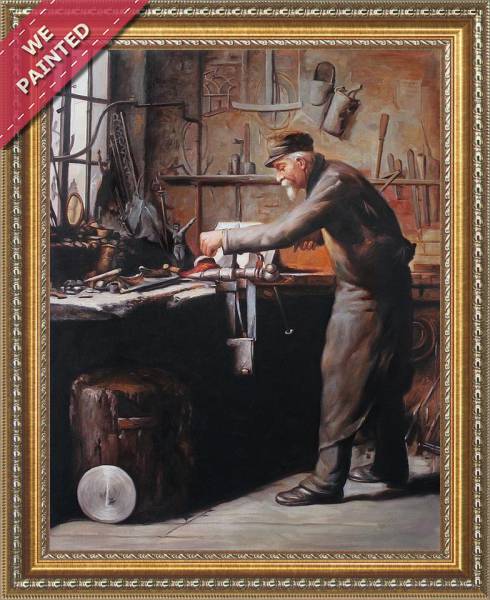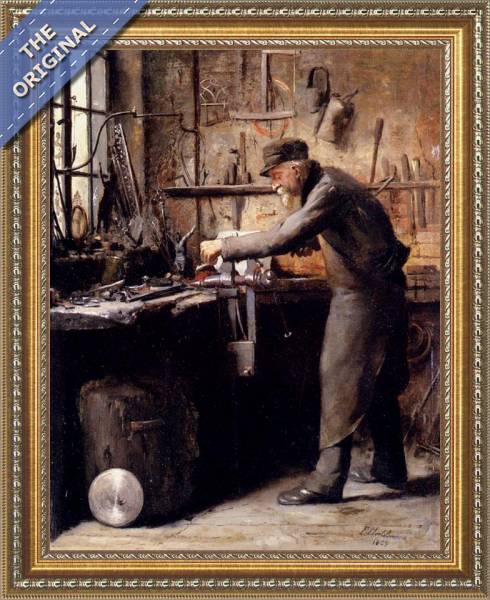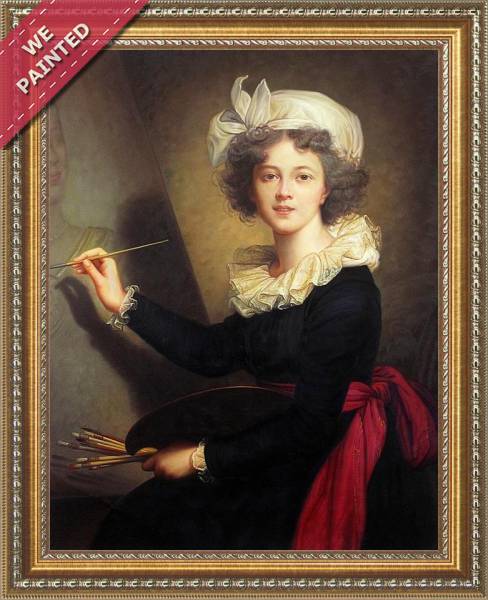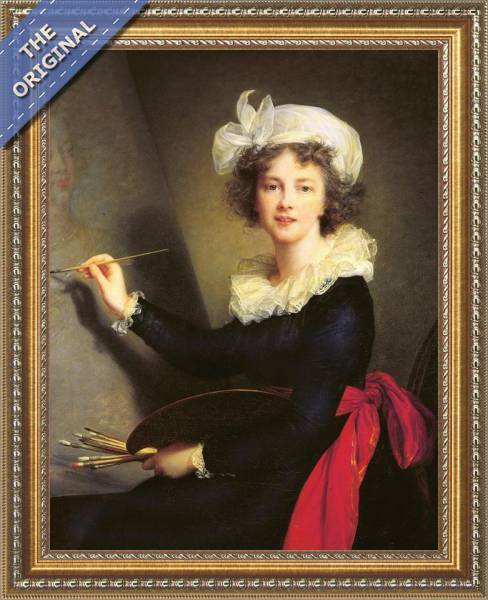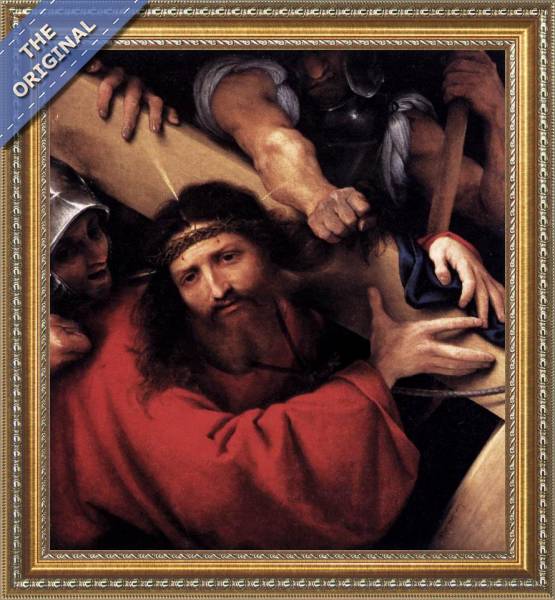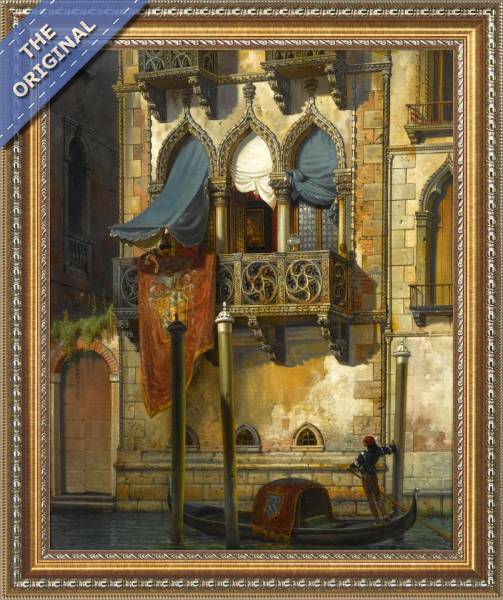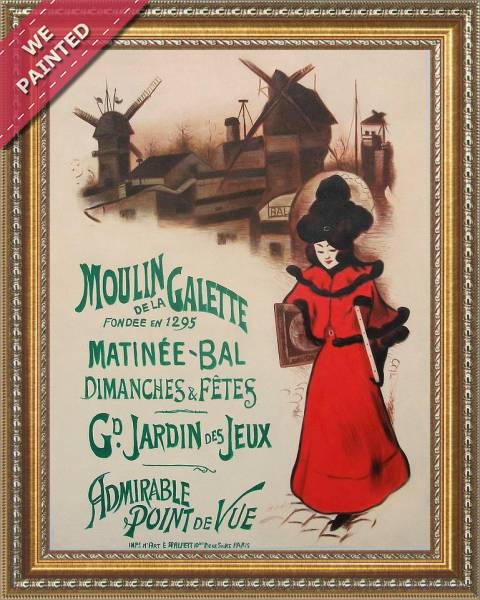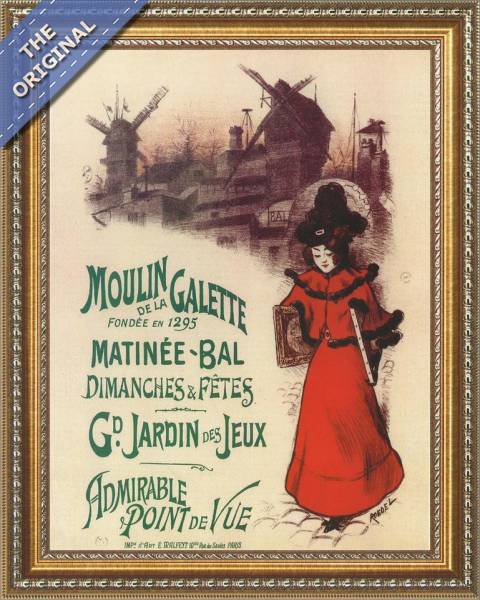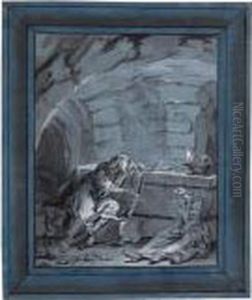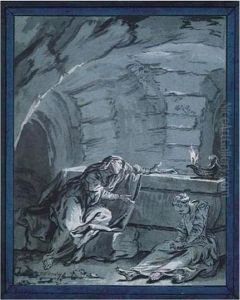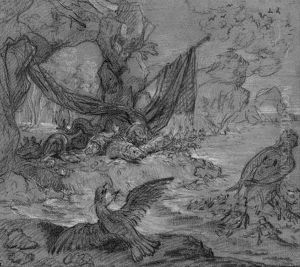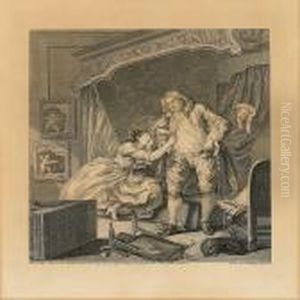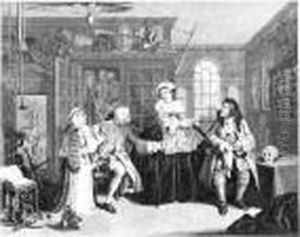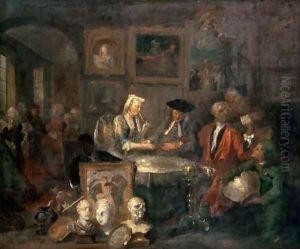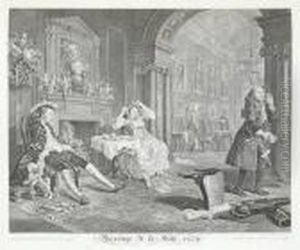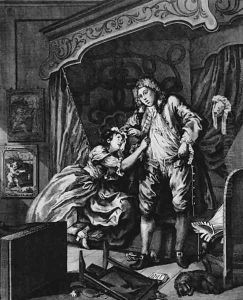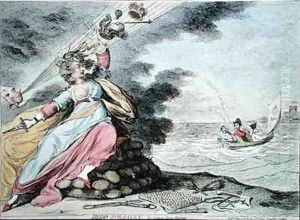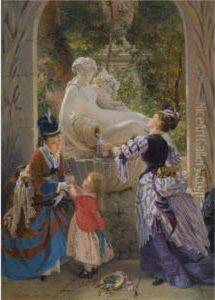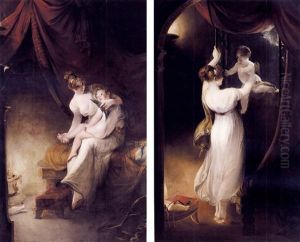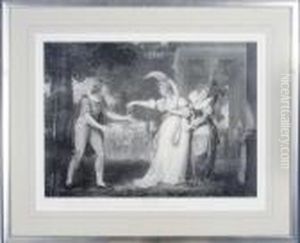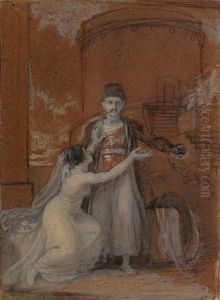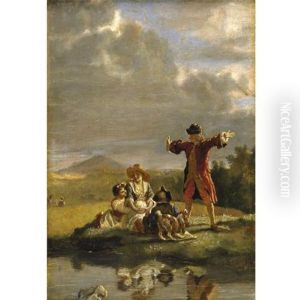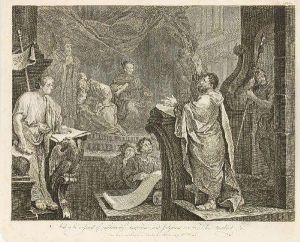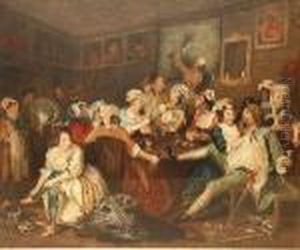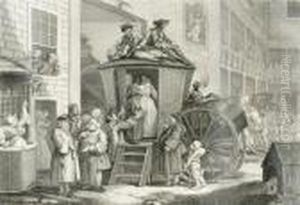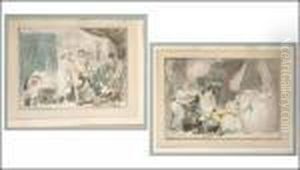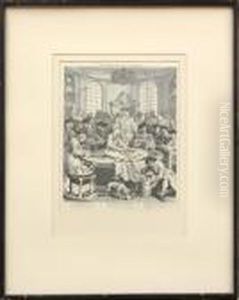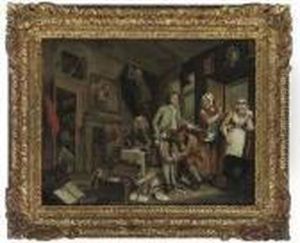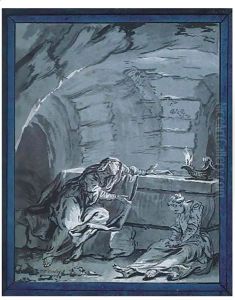





'The Matron Of Ephesus' From The Fables Of La Fontaine
-
About Reproduction
Bring the timeless beauty of Jean-Baptiste Oudry's 'The Matron Of Ephesus' From The Fables Of La Fontaine into your home with a handmade oil painting reproduction. Carefully recreated on canvas by skilled artists using traditional techniques, this piece captures the delicate brushwork, subtle light, and vibrant color of the original masterpiece. With museum-level quality and rich texture, it brings elegance and artistic depth to any space. Enjoy free shipping and make this masterpiece a part of your personal collection.
-
Original Description
Jean-Baptiste Oudry’s The Matron of Ephesus (c. 1720s) vividly brings to life La Fontaine’s satirical fable, capturing a pivotal moment of dark humor and moral irony. The painting depicts the legendary matron, overcome with grief beside her husband’s tomb, while a shrewd soldier lurks nearby—ready to exploit her vulnerability. Oudry, a master of Rococo elegance, infuses the scene with theatrical lighting and soft, fluid brushstrokes, heightening the contrast between despair and deceit. As a leading painter of 18th-century France, Oudry’s work bridges the ornate frivolity of Rococo and the emerging Neoclassical gravity, making this piece a fascinating study in narrative tension and stylistic transition. His animal and fable paintings were highly prized by aristocratic patrons, and this work exemplifies his skill in merging storytelling with lush visual appeal, securing his place in art history as a pivotal figure between Watteau’s charm and Greuze’s moralizing scenes.
For a refined yet dramatic decor, The Matron of Ephesus would command attention in a study or formal living room, ideally hung against deep-toned walls (navy or burgundy) to amplify its chiaroscuro contrasts. Its ideal size—likely a medium-to-large canvas (around 30x40 inches)—ensures visibility without overwhelming the space. Pair it with gilded Rococo frames or Louis XV-style furniture to echo its 18th-century origins, or juxtapose it with modern minimalist decor for a bold contrast. Warm, muted lighting (like candle-style LEDs) would enhance the painting’s dramatic shadows, while scattered accents of gold or crimson in cushions or rugs would harmonize with its rich palette. In an office, it could spark conversations about irony and storytelling, fitting well in creative industries or classic libraries.
-
Lead Time & Shipping
When you order this oil painting replica, it typically takes 2-3 weeks to paint. If the artwork is more complex, it might need a little more time to ensure the best quality. Once it's ready, we'll send you a photo for your approval. After you give the green light, we'll ship it to you for free.
-
Return & Refund
We believe in the quality of our hand-painted oil painting reproductions, and your satisfaction is our priority. If for any reason, you are not completely satisfied with your purchase, we offer a 45-day return policy. You can return your artwork within 45 days of receipt and receive a full refund. Please note that the artwork must be returned in the original packaging and in the same condition as it was received.





